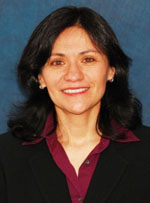By bragging on social media about the 5,000% price hike he had imposed on a 60-year-old drug needed by HIV patients, former Turing Pharmaceuticals CEO Martin Shkreli invited the wrath of the public and politicians. But Shkreli did not pioneer the practice. He simply exploited a situation that critics claim is protecting more and more drugs from competition.
By using Risk Evaluation and Mitigation Strategies (REMS) and other maneuvers, drugmakers can keep competitors from getting the supplies needed to develop competing versions. REMS were first required in 2007 as a wall to ensure patients were being safely treated with drugs that had potentially dangerous side effects. But the programs also put drugmakers in a position to restrict competition and charge whatever they want for a drug.
As the Associated Press reports, a study done for the Generic Pharmaceutical Association (GPhA) in 2014 estimated drugmakers used REMS to protect from competition $5.4 billion in sales on 40 small molecule drugs. About 40% of FDA-approved drugs are now subject to REMS, and as the study points out, the impact on biosimilar development could be enormous.
"It undermines the whole generic drug approval process," Steve Giuli, an executive with generics firm Apotex, told the Associated Press. Apotex and Roxane Laboratories sued Actelion ($ATLN) for refusing to hand over supplies of its drug Tracleer, so they could do the tests needed to develop generic versions of the drugs.
 |
| FTC chairwoman Edith Ramirez |
Their legal fight attracted attention from the Federal Trade Commission, which sided with the generic producers in their litigation. The furor the enormous price increase on Daraprim by Turing last year prompted Sen. Amy Klobuchar to urge FTC chairwoman Edith Ramirez to dig deeper into the practice. It also led the New York Attorney General to launch an investigation into possible misuse of the closed system, as has the Connecticut AG.
The AP points out that the FDA has noted that it has received 100 letters from companies that say they have been blocked from obtaining drugs so they can do their tests. While FDA rules say that drugmakers can't use certain types of distribution plans to hinder generic access, the agency doesn't impose penalties when companies do.
The GPhA study pointed out that of the $5.4 billion in lost savings, the federal government bears a third of the cost, mostly through Medicare, while private insurers catch about 45% and consumers the rest. The study warns that the practice is growing; about 40% of new drugs are subject to REMs programs that could potentially be abused. It also does not bode well for the tremendous cost savings Medicare and private insurers expect from biosimilars. If drugmakers use closed distribution systems to protect their biologics from competition, the study says "potential lost savings on biosimilars would be enormous."
- read the AP story
- here's the GPhA study